Research methods
Showing 1 to 30 of 47 results

What we learned from the first cohort of the Decoding Injustice Learning Lab
In 2023, CESR's Decoding Injustice Learning Lab welcomed its inaugural cohort. Here's a glimpse into what we've learned and our aspirations for future editions.

Latin America: CESR course on budgets and human rights
Registration is open for CESR's course "Sin recursos no hay derechos" at the Latin American "School for Activists", organized by our partners ACIJ, Namati & Red de Empoderamiento Jurídico.

Data for Economic, Social and Cultural Rights
CESR contributes to collective position on data and economic, social and cultural rights.

Testing the Water: Using Opera to Assess How the Right to Water in India Is Protected in a Changing Climate
How can activists expose the effects of government policies on people's rights? In this guest blog, Harvard law student Laura Bach details her experience using our OPERA Framework to explore how the right to water is guaranteed in India.

Reclaiming the Narrative: Using Data to Shift Power for Economic and Social Rights
Human rights can help us examine how power is reproduced in the production, collection, and use of data. They also suggest how we can correct these imbalances and distortions. We are engaging in collective efforts to develop data principles for economic, social, and cultural rights.

Fostering new approaches to monitor COVID recovery in MENA
We shared toolkits and methods for a rights-based monitoring of COVID-19 recovery with the Oxfam FAIR-EiU Knowledge Hub forum.

Research Handbook on Economic, Social and Cultural Rights as Human Rights
This exciting new Research Handbook on Economic, Social and Cultural Rights as Human Rights, published by Edward Elgar, provides a comprehensive, cutting edge analysis of economic, social and cultural rights. It also explores the connection between these and other rights. It combines practitioner and academic perspectives—including from CESR and a number of our partners and allies—to offer an authoritative analysis of standards and jurisprudence.

International Journal of Human Rights: Special Issue on human rights and economic policy reform
Volume 24, Issue 9 of the International Journal of Human Rights is a special issue, co-edited by Aoife Nolan and Juan Pablo Bohoslavsky. It brings together experts working on human rights and economic policy from a range of disciplinary perspectives, including economics, law, and development studies.
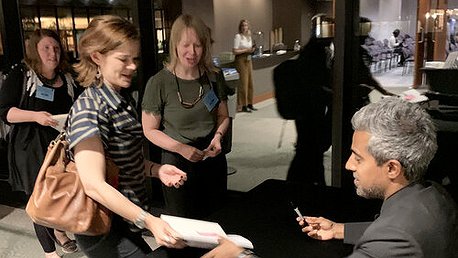
Going Against the Grain: Human Rights and Working for Change
The Going Against the Grain conference focused on local grassroots initiatives that use human rights as a practical tool to actively take on vested interests and advance economic democracy.
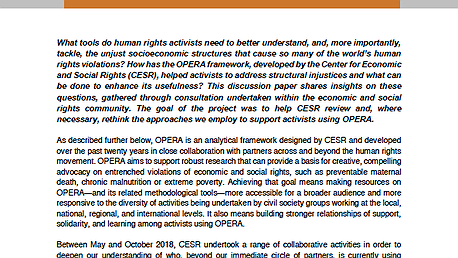
Publications, Reports & Briefings
The Next Act for OPERA
Consultations with partners who use the OPERA framework found that users need practical guidance and creative models.

ESPI provides alternative to traditional economic indicators that ignore the disenfranchised
Mahinour El-Badrawi was interviewed about ESPI for Tax Justice Network's Arabic Podcast.
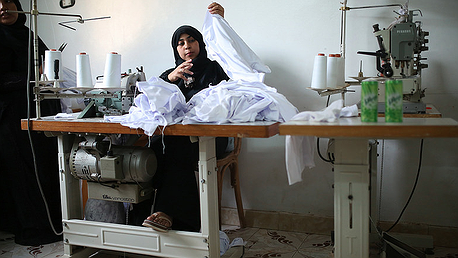
Labor rights and workplace equality in Egypt: new measure finds progress lacking
The Egypt Social Progress Indicators (ESPI) project recently released findings reflecting an overall need for broad policy changes to improve labor rights, working conditions and wage trends.

Rights and resources: fostering governments' compliance with human rights
Governments can realize maximum available resources by referencing current distributional debates and establishing hard law solutions via the international human rights ecosystem.

Do Metrics Matter? Accountability for Economic and Social Rights in Post- Revolution Egypt
In Economic and Social Rights in a Neoliberal World, Allison Corkery and Heba Khalil identify the ways in which quantification can help build civil society power while challenging neoliberalism in Egypt.

OPERA Stories: Using metrics to reframe “progress” in Egypt
Heba Khalil is a longstanding collaborator with CESR, most recently on the Egypt Social Progress Indicators. She is a PhD student at the University of Illinois and a researcher with the Social Justice Platform (SJP).

OPERA Stories: Giving indicators and benchmarks a human face in the UK
Koldo Casla and Imogen Richmond-Bishop discuss using OPERA in a national human rights context and the importance of a human element in rights advocacy work.
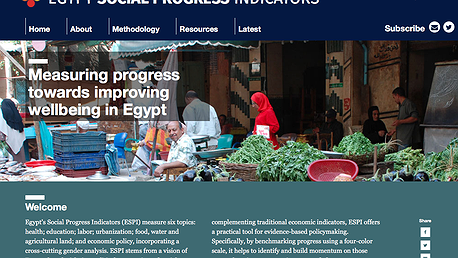
Egypt: New rights-based metric measures social and development progress
A new metric, developed jointly by CESR and its partners in Egypt, offers a more multidimensional view of the socioeconomic situation in Egypt and its human impacts.

The next act for OPERA
The OPERA House project asks which tools human rights activists need to better understand and tackle the unjust socioeconomic structures that cause so many of the world’s human rights violations.
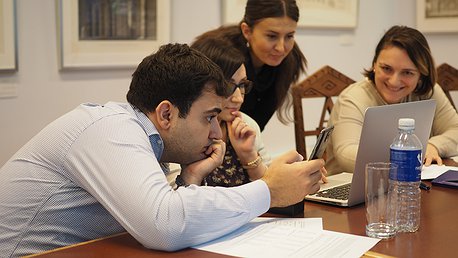
The next act for OPERA: Part 2—How do we get there?
CESR wants to deepen its understanding of who is currently using OPERA or its related methodological tools, and how. We’re inviting interested collaborators to sign up to learn more about getting involved in the OPERA House project.

The next act for OPERA: Part 1—From where to where?
What tools do human rights activists need to better understand, and, more importantly, tackle, the unjust socioeconomic structures that cause so many of the world’s human rights violations? The Center for Economic and Social Rights is excited to embark on a new project over the next six months—the OPERA House—that seeks to answer that question.

IMF Springs: Reconciling conflicting messages on austerity and inequality
At the Spring Meetings of the IMF and the World Bank this week, CESR will share its work on human rights in times of austerity, and will promote more sufficient, equitable and accountable fiscal policies that uphold human rights.

Assessing Austerity: Tools for preventing another Lost Decade for human rights
Setting out a methodological framework for assessing and addressing the human rights impacts of fiscal consolidation.
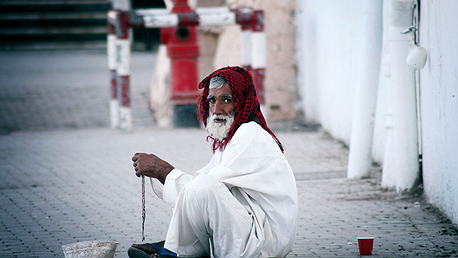
Methodological choices in human rights research are political, not just technical
Media: The methods human rights researchers and advocates use determine what injustices we see and prioritize, making methodology far more than just a technical choice.

How Data Is Helping in the Struggle for the Right to Education in South Africa
CESR's Allison Corkery writes in Open Society Foundations Voices blog about using OPERA tool with Legal Resources Centre to identify indicators and analyze data for tracking implementation on South African education rights case.
New ESCR tools and methodologies introduced to Buenos Aires Public Defender
In November, CESR's Sergio Chaparro participated in a workshop with the Ministerio Público de la Defensa of Buenos Aires about how to use the OPERA framework in the department's daily work.
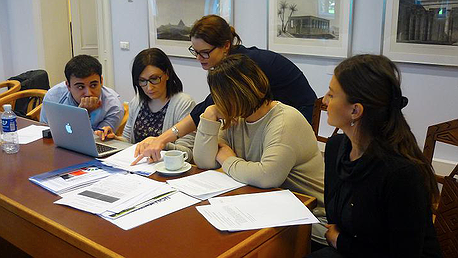
Sharp data skills and strategic venue choices key to claiming ESCR
CESR workshopped with multiple European partners in Riga, Latvia to strengthen national human rights institutes' capacity to increase skills for handling ESCR complaints and monitoring socioeconomic policies.

OPERA in South Africa: How Strategic Litigation + Strong Data = Better Implementation
In a new case study, CESR and the Legal Resources Centre reflect on a joint project piloting the use of the OPERA framework to analyze implementation in a case on the right to education in South Africa.
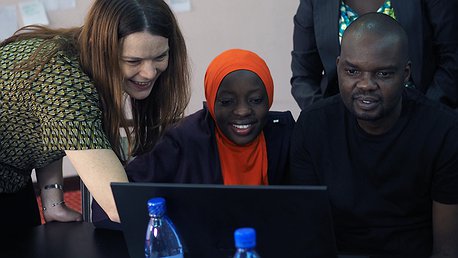
Made to measure? Using public policy guidelines as human rights benchmarks
Last month, CESR's Allison Corkery joined a group of practitioners and academics from diverse disciplines for a workshop organized by the Human Rights Methodology Lab.
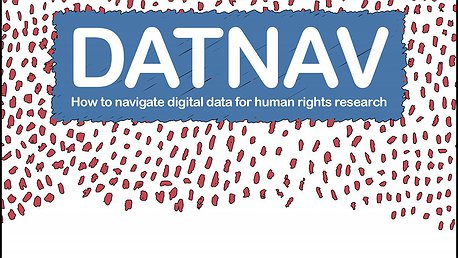
Manuals & Guides, Publications
DatNav: new guide to digital data in human rights research
Resource: DatNav is a new guide, produced with the collaboration of CESR.

SDG targets risk missing the mark on inequality
As the UN Statistical Commission debates final proposals for the SDG indicators, there is serious concern over the absence of a robust measure of inequality.